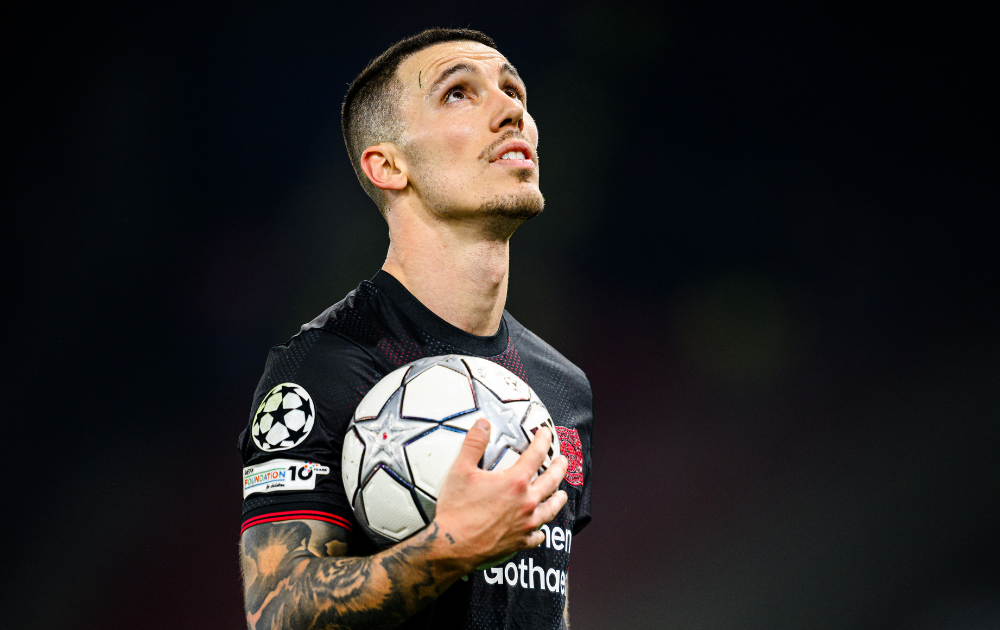Ranked! The 50 best football teams of all time
The best football teams ever – club and country – following rounds and rounds of arguments from the FourFourTwo team
The best features, fun and footballing quizzes, straight to your inbox every week.
You are now subscribed
Your newsletter sign-up was successful
Want to add more newsletters?

Five times a week
FourFourTwo Daily
Fantastic football content straight to your inbox! From the latest transfer news, quizzes, videos, features and interviews with the biggest names in the game, plus lots more.

Once a week
...And it’s LIVE!
Sign up to our FREE live football newsletter, tracking all of the biggest games available to watch on the device of your choice. Never miss a kick-off!
Join the club
Get full access to premium articles, exclusive features and a growing list of member rewards.
30. Flamengo 1980-83
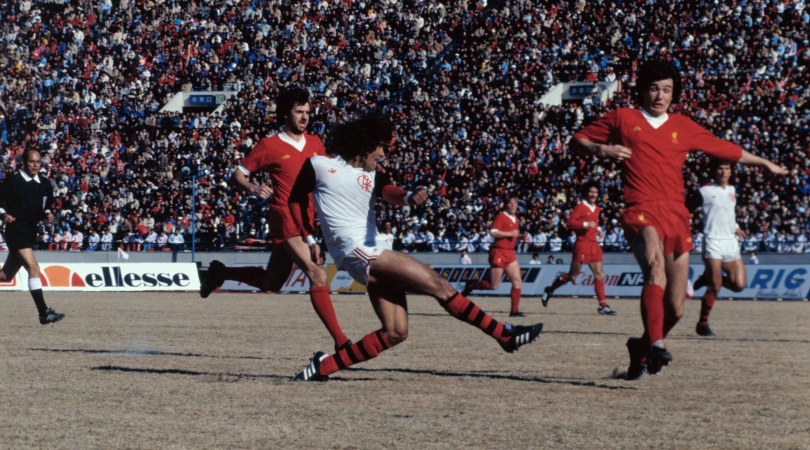
The Flamengo side that won the Copa Libertadores and beat Liverpool 3-0 in the Intercontinental Cup in 1981 is often reductively described as the genius of Zico and 10 others.
Zico was the most gifted Brazilian footballer since the original Pele, able to somersault in the air and score with a backwards overhead volley. Adoring Flamengo fans would jokingly wish each other “Happy Christmas” on March 3, his birthday.
But the man himself was uncomfortable with such reverence and knew his side couldn’t have conquered the world without the flair of attacking right-back Leandro, the versatility of Junior or the goals of Joao Batista Nunes.
29. Nottingham Forest 1977-80
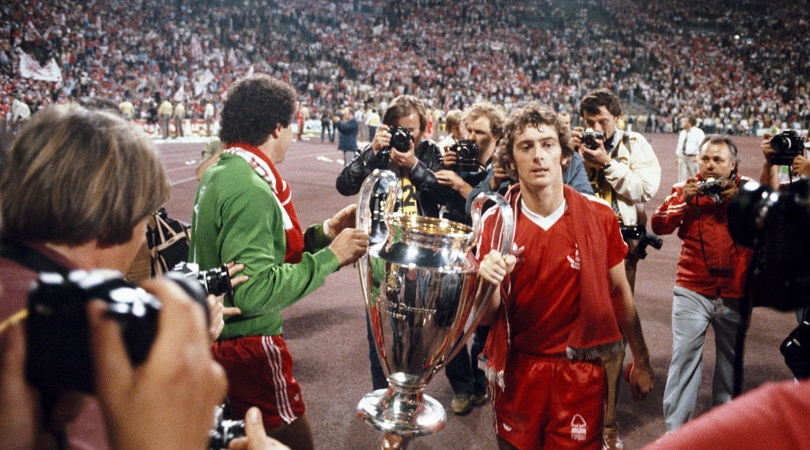
Has any team proved so much greater than the sum of its parts than the Nottingham Forest that won back-to-back European Cups under Brian Clough and Peter Taylor? This dynamic duo perfected a remorseless and entertaining good cop/bad cop act that filled their players with existential dread.
In 1977/78, newly-promoted Forest shipped just 24 goals and became the fourth – and last – team to win the league the season after winning promotion. They were as self-confident in Europe, beating Malmo and Hamburg in successive finals.
Gunter Netzer praised midfielder John McGovern’s ability to control games, while John Robertson, the team’s Picasso, greatly impressed the Italian coach Enzo Bearzot, who beamed: “When he has the ball, he can create something.”
28. Budapest Honved 1950-55
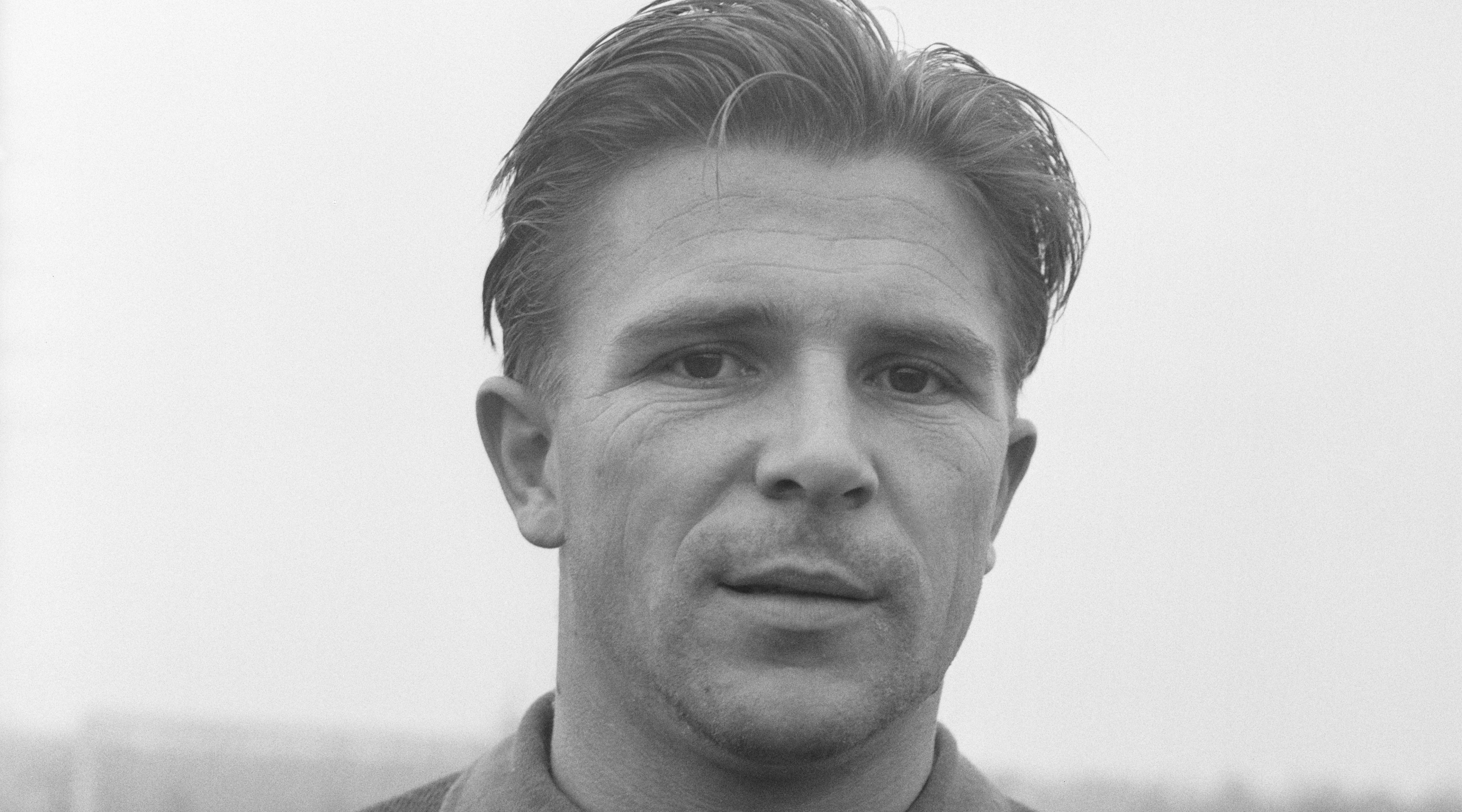
In the mid-1950s, Honved were the team the world wanted to watch. Coached by Gusztav Sebes, the architect of the Mighty Magyar side that beat England 6-3 at Wembley, Honved became an R&D lab where new tactics were honed, inspiring Brazil’s World Cup winners in 1958 and Rinus Michel’s Total Football.
The best features, fun and footballing quizzes, straight to your inbox every week.
With their movement off the ball, interchanging positions and clever passing, Honved played a kind of football that seemed to come from outer space. They could only do so because Sebes could call on such greats as Ferenc Puskas, Sandor Kocsis, Jozsef Bozsik, Zoltan Czibor and Gyula Grosics, who helped Honved to five titles in seven years.
27. France 1996-2000
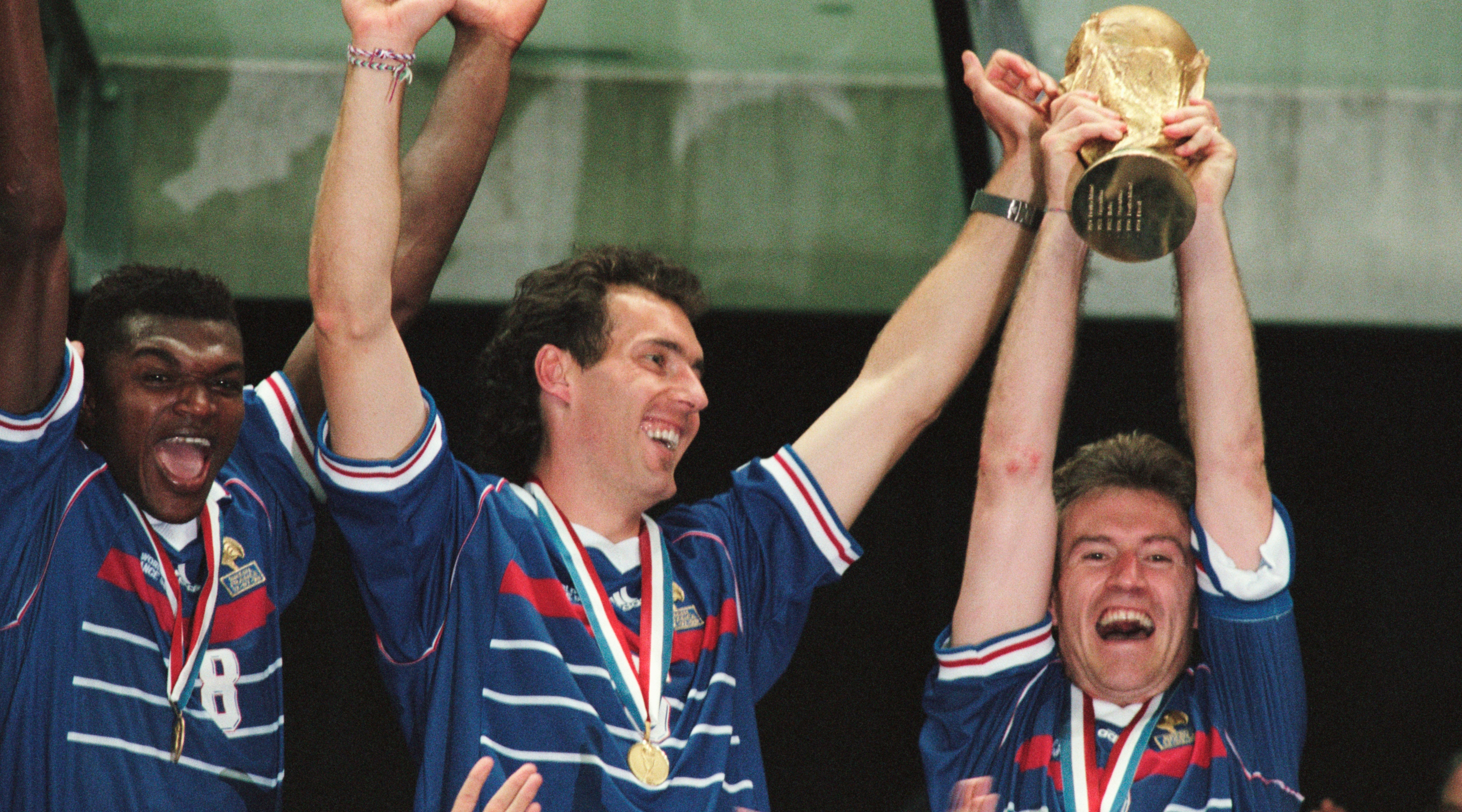
France had a fallow patch after the break-up of their glorious mid-’80s team, missing the tournaments in 1988, 1990 and 1994 while exiting Euro 92 winless.
But a new breed was emerging, with an international flavour. Eric Cantona’s year-long suspension in 1995 handed the playmaker baton to son of Algerian immigrants Zinedine Zidane, alongside schemer Youri Djorkaeff (son of an Armenian and a Kalmyk Pole).
Their guile was given a platform by a strong defence including Laurent Blanc, Lilian Thuram, Marcel Desailly and Bixente Lizarazu. Conceding two goals in seven, Les Bleus won the World Cup on home soil, before triumphing at Euro 2000.
26. Borussia Monchengladbach 1970-79
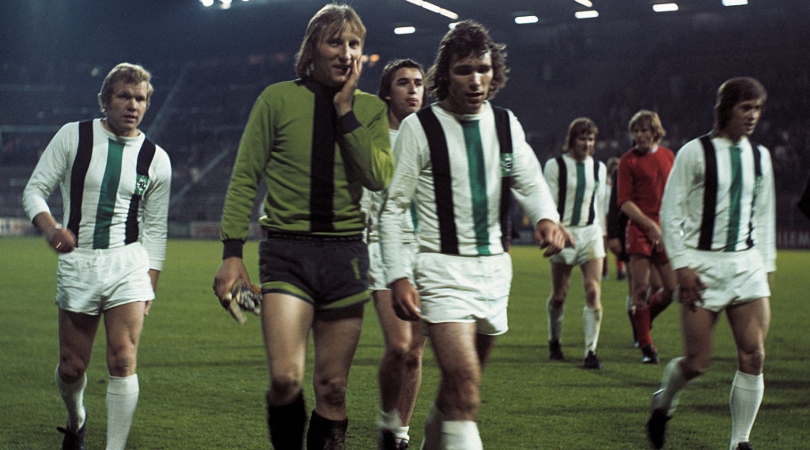
The story of this team is a miracle. Not even the success of Brian Clough’s Forest was as improbable as the rise of this small, provincial club.
Or maybe it was destiny. After all, there seems to be no better explanation for the fact that during the short post-war era when local boys still played for their hometown clubs instead of looking for riches elsewhere, no fewer than five men who would win the 1972 European Championship with West Germany – and five Bundesliga titles and two UEFA Cups for their club – were born within a 10-mile radius around a town considerably smaller than Nottingham.
Jupp Heynckes, Günter Netzer, Berti Vogts, Horst-Dieter Höttges and Erwin Kremers – they were all Mönchengladbach lads.
25. Juventus 1994-98
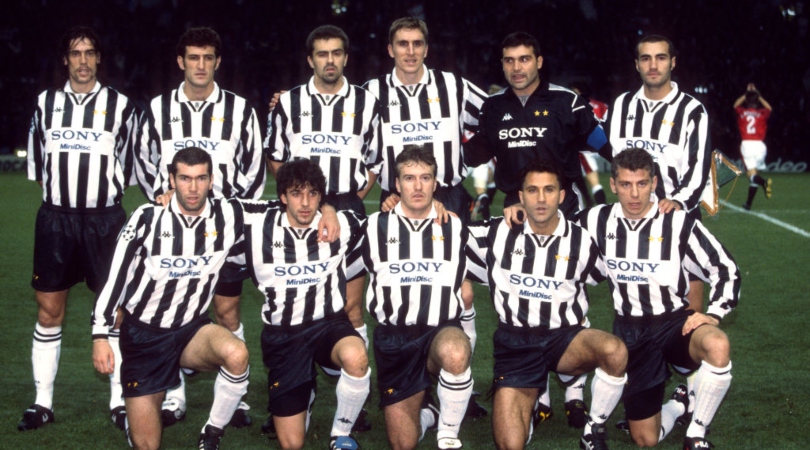
When Juventus won the Champions League in 1996, players wept with joy. Marcello Lippi’s Bianconeri were indisputably the best in Europe – they had swept aside Borussia Dortmund and Real Madrid, before beating Ajax on penalties after winning the first of three Serie A titles in four years. They would also reach two more Champions League finals, losing both.
Yet this golden era was tarnished by revelations that players were routinely given prescription drugs and antidepressants, even if they didn’t need them. Does this negate the team’s feats? Either way, Lippi’s team was brilliantly engineered, featuring the finest forwards in Europe – Alessandro Del Piero, Fabrizio Ravanelli, Alen Boksic, Pippo Inzaghi, Gianluca Vialli and Zinedine Zidane.
24. Preston North End 1888-89
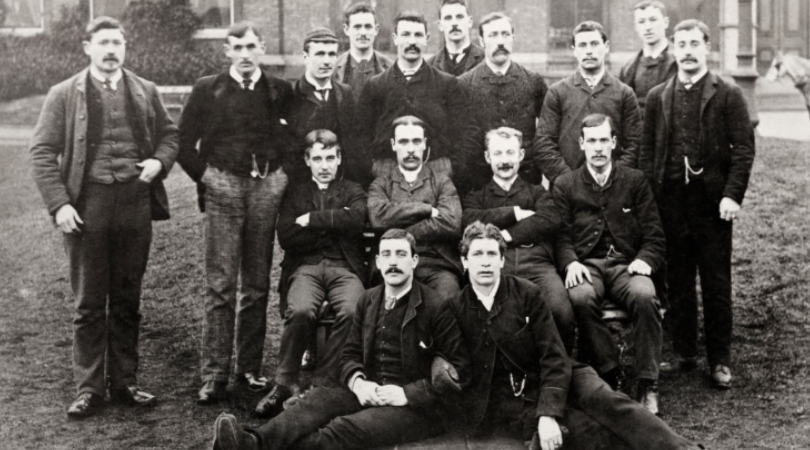
Preston were football’s first great team: innovators, agitators, the original Invincibles. They paid players before professionalism even existed, pioneered a previously unseen ‘pass and move’ game when dribbling was all the rage and were among the first clubs to look beyond their local area for top talent.
The Lilywhites’ achievements in the 1888/89 season alone would have made them contenders for a place among football’s greatest-ever sides. Unbeaten in the inaugural First Division with a goal difference of +59 across 22 games, their win ratio would have given them 100 points in the Premier League era.
They completed the Double without conceding a goal in five FA Cup matches, then retained the title the following season.
23. Boca Juniors 1998-2003
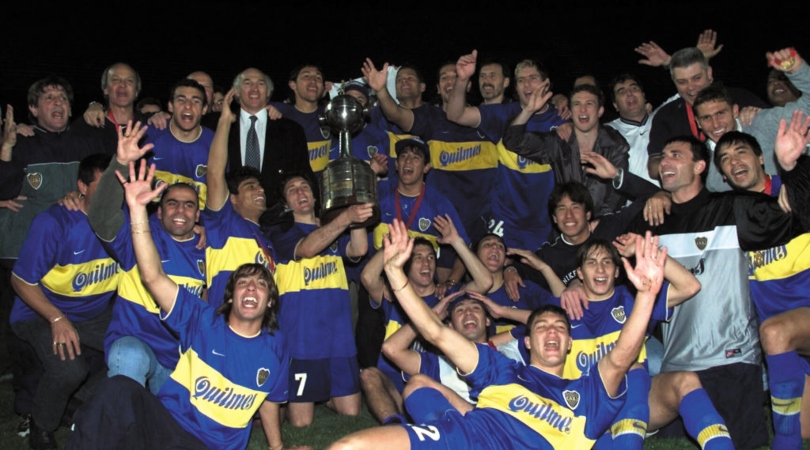
When Carlos Bianchi took over in 1998, Boca were distinctly average. They’d won just one minor trophy in 15 years, their back-to-back Copa Libertadores victories of the late-’70s a distant memory.
Time for an overhaul. Bianchi trimmed a bloated squad and redeployed the classic Boca system: 4-3-1-2, with an eccentric goalkeeper, hard-working defenders and a disciplined midfield, all orchestrated by a mercurial No.10 (Juan Riquelme) and spearheaded by a predatory goalscorer (Martin Palermo).
It was simple, direct and intense – and it worked. Boca won the Libertadores in 2000, 2001, 2003 and reached another final in 2004, plus four league titles and two Intercontinental Cups triumphs over Real Madrid and Milan.
22. Estudiantes 1967-71
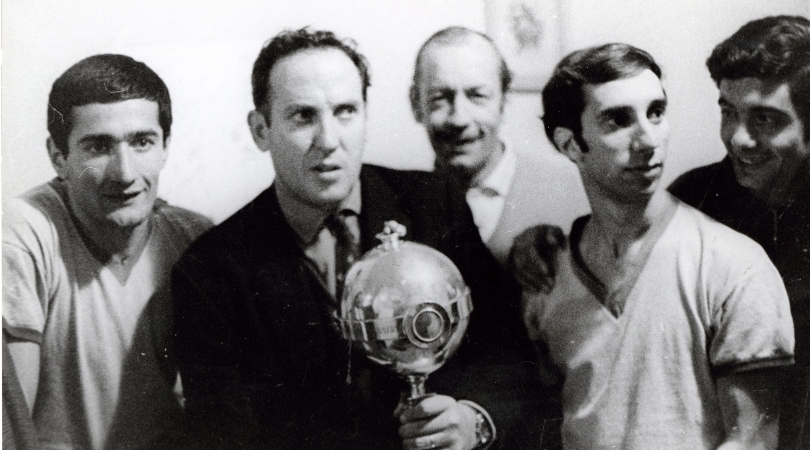
The Argentines won three successive Copa Libertadores from 1968, but it’s the all-consuming gamesmanship for which they are best remembered.
To Estudiantes, their roughhouse tactics felt necessary after a lengthy period of domination from Argentina’s Big Five (Boca, River, Independiente, Racing and San Lorenzo). They broke the quintet’s ruling with the title in 1967.
Their first Copa success was a welcome achievement for a team outside of all-conquering Buenos Aires. They followed that up with an Intercontinental Cup victory over Manchester United in which Nobby Stiles was sent off in the first leg, before a particularly bad-tempered second resulted in George Best punching Jose Hugo Medina as both men were shown red.
21. Barcelona 1988-94
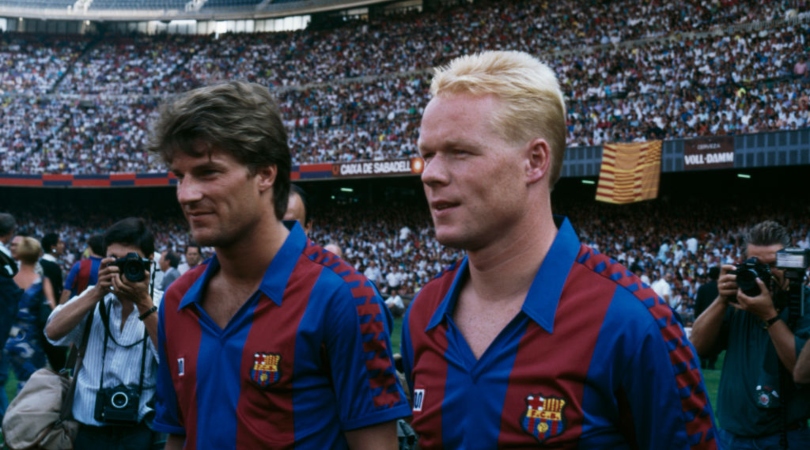
Johan Cruyff’s Dream Team brought about a Total Football revolution at the Camp Nou and beyond. They may have been subsequently outshone by Pep Guardiola’s cohort, but even Pep knows it wouldn’t have been possible without his old manager.
“They were pioneers and we cannot compete with that no matter how many trophies we win,” Guardiola said in 2011. “We will never equal the period of the Dream Team.”
It took Cruyff until 1991 to land his maiden Liga crown, but it proved the first of four in succession to complement two Copa del Reys (1988, 1989), the European Cup Winners’ Cup (1989) and a first-ever European Cup in 1992.
Current page: Best football teams ever: 30-21
Prev Page Best football teams ever: 40-31 Next Page Best football teams ever: 20-11
Ryan is a staff writer for FourFourTwo, joining the team full-time in October 2022. He first joined Future in December 2020, working across FourFourTwo, Golf Monthly, Rugby World and Advnture's websites, before eventually earning himself a position with FourFourTwo permanently. After graduating from Cardiff University with a degree in Journalism and Communications, Ryan earned a NCTJ qualification to further develop as a writer while a Trainee News Writer at Future.
 Join The Club
Join The Club










